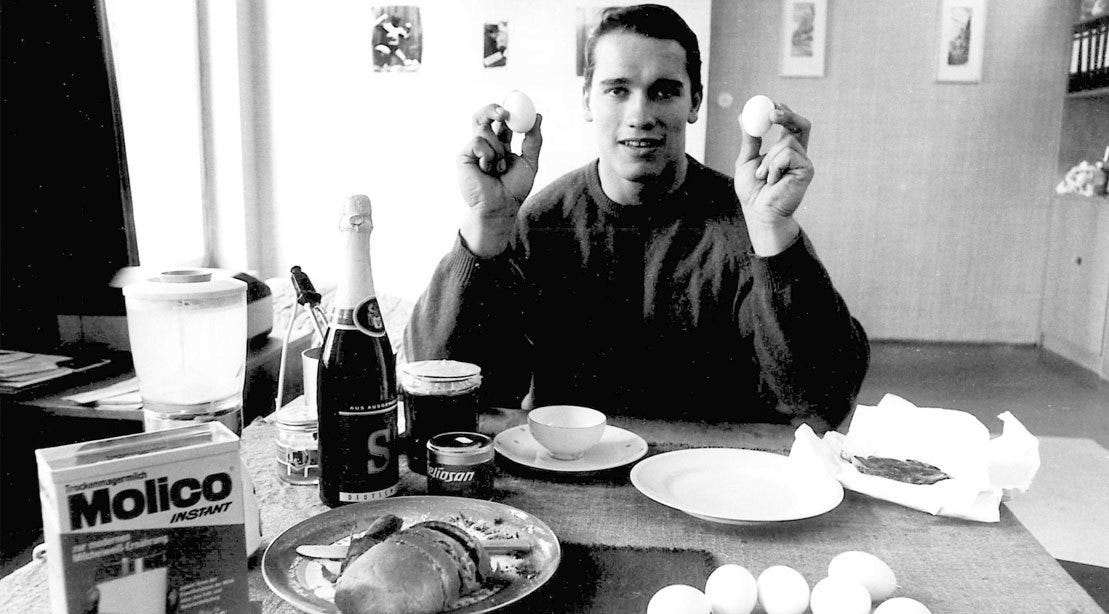When I first started lifting weights one of the first things I bought was a big tub of protein. Every day I would have a scoop after working out. In my mind, the key to unlocking a physique like Arnold was that little plastic scoop of powder.
Culturally, we are protein obsessed. Being big and strong is a trait reserved for barbaric meat-eaters. Men’s products are marketed as “protein-packed.” Women’s protein products often mention the benefits of “lean” muscle development. Simply put, if you want a nice physique you need protein.
So what’s the big deal? Is protein the key to unlocking your dream physique? The answer: it’s complicated. (Like most things.)
Here are some rules for protein intake that will help you get a grip on what protein is all about and how you can use it for your training:
1g of Protein Per Pound
One of the greatest things about protein is that it’s consistent for every style of diet. Carbs and fats can fluctuate but protein is always the same: 1g per lb of body weight.
If your goal weight is 180lbs, get 180g of protein. If you aren’t exercising consistently the medical recommendation is 0.8g per kilogram of body weight for maintenance.
It’s a simple fact that our bodies will break down with age and keeping an eye on these numbers has been proven to protect our muscle mass as we age.
More Protein Doesn’t Mean More Muscle
Eating more protein than the number you calculated above won’t lead to more muscle. Think of protein as your fuel for muscle recovery. Once you fill the tank your body has enough fuel to recover. Anything more is going to be hard for your body to process and will end up in your intestines. You’ll be gassy and bloated and nobody will want to hang out with you.
Also, overdoing the protein has been proven to lead to long-term health problems. (However, this is often correlated to the diets that are high in protein like diets that are heavy in fatty meats.)
Supplements are Supplemental
Supplements are so popular in fitness culture that it’s easy to forget their purpose. They exist to supplement nutrients that you aren’t getting in food.
Protein powder is a tool to utilize when you aren’t getting enough protein through food. Some protein powders also help supplement carbohydrates for weight gain, so if you’re choosing a protein powder for supplementation make sure you check the label and get one that is low calorie.
To avoid needing to take ten scoops of protein a day you should pack your diet with high protein foods like egg whites, lean meats, and greek yogurt.
And that’s it! Keep these things in mind and good luck with your week of fitness and diet. As always, reach out to contact@push.fyi with any questions or comments.




